“The tide began to rise, and with it, the level of the water. The river banks began to overflow into the settlement. Water flowed through the roads and snaked between the houses.”
***
It was beautiful that evening, the sun hung high, a giant red ball against a backdrop of orange and light blue sky. Its reflections cast a peculiar amber hue that layered everything in sight as it dipped lower in the horizon. The tranquil atmosphere carried a somber spirit that bordered on terror, and the stillness of the air and the silence that came with it was broken only by sounds of shuffling anxious feet. There was a gathering at the riverside for the annual sacrificial offering and every soul in the village was required to be present.
Ode, an ancient waterside village surrounded by evergreen forests and tall stately trees, harbored people known for their calmness and unusual friendliness. But as they traveled down to the river that evening, a series of fierce screams began to pierce the air.
“Arrrggghhhh!” The voice was young and terrified.
The villagers, unmoved, continued their journey down the wide and very old footpath that led to their murky brown river. A bald old man led the way. He wore a white linen wrapper around his waist with one edge draped across his chest and sliding down behind his left shoulder. He also carried an earthen pot filled with herbs of all kinds. His chalk-painted face favored eyes that were round, piercing and looked completely white in their sockets. His wrinkled, old skin was furrowed above the eyes and his chin equally wrinkled beneath two thick lips turned downwards at the edges.
Two others followed, young and in white linen wrappers around their waists. They bore staffs and wore straight faces while keeping a respectable distance behind their leader. Behind them, the villagers followed, calm, serious and hopeful.
“Arrrggghhhh! Arrrggghhhh! Arrrggghhhh!”
The screams continued to ruffle the air, their ripple effect planting a new kind of apprehension in the hearts of the villagers.
A little girl struggled, held firmly by two hefty men dressed in all white. She was nine, and she knew what it was to die. She was going to.
“Mama,” she dug her heels into the soft wet sand. “Mama, please save me!”
Her face was turned backwards as the men dragged her closer to the swirling river.
“Mama!”
Her parents followed behind the men, ahead of the procession. They were grief stricken but barefaced and could not utter a sound. The oracle had picked their daughter, and the word of the oracle was final. It was an honor, a thing of pride. The village would forever remember their love sacrifice. Besides, were there not three other children, all boys?
The mother swallowed and let her tears flow. She could not hold them back anymore. There was no one to whom she could appeal. There was no one to save the life of her only daughter, her first child. The king’s face remained stony. His attendants arrayed in a file behind him, his four wives and three concubines. His fourteen royal children came next, then the chiefs and elders of the village. Taking the rear, the rest of the villagers trouped after them.
“Papa, Papa, save me.”
The screams were louder now, as the Chief priest signaled for the sacrifice to be brought near. His low rumblings became audible as he sprinkled the herbs towards the river and edged closer to it. The wind began to blow, and the tide came with it, gently covering his feet with the warm river water. His attendants followed behind him, stopping on either side of him as he turned slowly to face the crowd of villagers.
“Save me! Please!”
She struggled and wailed as the two men dragged her towards the river and the stern old man with his two assistants.
“I don’t want to die!” she yelled again, tears streaming from her face. “I don’t want to die!”
Her screams tore at the hearts of the villagers, but who would dare answer? The sacrifice was for the village. Everyone wanted an end to the era of famine that had plagued them for seven months gone. No one could spare any pity for her, or her parents. It was better for one person to die than a whole village to be wiped out.
She thrashed about as she was handed over to the attendants who grabbed her hands and legs. They held her stretched out over the surface of the water and waded deeper into the river till it was waist high. Then she was submerged beneath it. The old man muttered his incantations and threw more herbs into the river. She screamed, swallowing salty river water, as the old man emptied the contents of the pot over her body and the attendants raised her up. She came out of the river coughing.
The priest scooped up water with the pot and poured it over her five times, each time mumbling. “Life for life,” he said. “Her life, for our life.” He muttered the words under his breath over and over again till it became a chant sung by his attendants.
Then the king joined them, and then the villagers, everyone clamoring for the exchange of the life of the young girl with that of the village. The drums began to sound from far away. Slowly at first, the beat soothing and rhythmic, and then faster, rising with the pace of the priest’s chant and the wind that blew across the river.
“River god!” the old man bellowed, as he dropped the pot into the river with a splash. “Accept your sacrifice!”
The mother stopped, gasped and almost ran forward, but concerned villagers pulled her back. Her daughter screamed for the last time as she was raised up into the air and then held under water. Her body thrashed for what seemed like a long time and then it finally lay still.
Suddenly, a large river wave that seemed human in form peaked in the distance and floated up from the surface of the water. The villagers all looked up at it in awe as its arms seemed to open up in acceptance of their offering as it ascended. It spread itself out over the water and then descended abruptly, crashing heavily unto the edge of the river in an angry splash that bathed the priests and his attendants in a cascade of water. Parts of it rolled leisurely over to the sandy bank where the villagers stood.
Everyone stared at the body in the river as it drifted away from the shore, and then looked up to the sky hoping their sacrifice would be accepted.
A week later, the rain fell.
It came down in sheets. Torrents of water tumbled from the sky, pelting the iron roofing sheets with ferocious sounds, soaking the raffia-covered mud houses and turning the reddish earth of Ode village into thick pastes of mud. Little children ran barefooted and naked into the cold, their screams of laughter and delight filling the air as they danced around the village square. Women rushing back from the market hurriedly scooted around trying to get everything inside while the men returning from their farming and hunting trips walked slowly, savoring the downpour. It was about time the rain fell. It had stayed away for too long.
And then it rained steadily for three days.
The tide began to rise, and with it, the level of the water. The river banks began to overflow into the settlement. The roads were muddy and filled with brown water. Water seeped through the raffia roofs into the mud houses and kept most children busy scooping them out. Water flowed through the roads and snaked between the houses sliding underneath the doors and pooling beside the walls. The crops were destroyed, farmlands washed away and houses rendered inhabitable. The water was obliterating the settlement. The earlier relief at the thought of the end of the dry season slowly faded into worry as many of the villagers kept to their houses, wary of the endless heavy downpour. Soon, fishes, lizards, toads, crocodiles and other reptiles swam into the village settlement.
The King gave the edict to move to higher grounds but few villagers heeded the call. By the fourth day, the rain had rescinded but the water had broken into most homes and risen almost to shoulder level. Many threw the few possessions they could salvage into canoes and rowed away from the village and the river animals that had swum into their community. Many mud houses were washed away, and many who couldn’t swim, called on their neighbors for help….
***
“What kind of a story is that?” Kelvin asked his older brother breaking the flow of his narration. “I don’t like it.”
“But you asked me to tell you a story,” Emmanuel replied chuckling.
“Yes, but not one that reminds me of what happened to us.”
“Sshhhh….” His lanky older brother suddenly frowned and put a finger across his lips.
“What is that?” Kevin asked curious. “Is it an animal?”
Emmanuel cocked his ear for the sound in the distance and raised the grubby black lantern with its faint orange glow in the middle. There was a weak sound of water swishing amidst the croaks of toads and crickets.
Kelvin watched his older brother anxiously. “Well, is it?”
“It’s father,” Emmanuel announced. Then he turned around and began crawling along the corrugated iron roof towards the wooden canoe paddling slowly towards them. The lantern was raised high.
“Emmanuel!” Kelvin’s hiss sounded more like a high pitched cry as he looked fearfully around in the darkness. He turned unto his stomach from his half squatting, half sitting position. “Wait for me,” he continued, a little more quietly, and crawled after his brother.
“Hurry up!” Emmanuel sounded angry.
Kelvin could see him up ahead, slowly turning around and easing his long frame into the canoe being paddled by a grim faced man with a large flat nose and more lines on his brown face than normal. The man looked angry too, or worried, or both. Kelvin couldn’t tell which. The lines that bothered between worry and anger had melted into one in their little community. Everyone was either worried or angry or both. The rain and the floods had come suddenly, and given no one time to prepare.
“Kelvin,” said the man with the grim face. His father.
“I’m coming.” Kelvin hurried into the canoe beside his brother and father and stared at what was left of their home as his father rowed away without a backward glance.
They had waited, himself and his brother, for hours for their father to take their mother and three sisters away to safety in the secondary school uphill where a relief camp had been set up. They had waited on the roof in the hot sun, sitting on wet clothes lain to keep the iron roofing sheets from burning their skin. They had waited till dusk, and Emmanuel had told him the story, the story of the nine year old girl and the village sacrifice. Emmanuel was going to be a writer one day, so he always said.
Kelvin stared at the brown water. He was worried that there were dangerous animals in it. He was also thinking about the little girl, and what the villagers had done to her. The river god had indeed responded, and with vengeance.
He looked up at his father’s strong back as the latter rowed the canoe further away from the place that had once been their home. His father’s shoulders were tired and slumped and he knew, despite his brief ten years, that his father was broken hearted. He had been a secondary school teacher for almost two decades, and now they had lost everything that had ever belonged to them in the flood. There had been no time to get anything out, the river had risen suddenly at the first break of daylight and had taken over their homes by afternoon. Emmanuel said that someone had opened the Lagdo dam in Cameroon and it had flooded into the Benue River. Kelvin had never even heard of the place.
He looked over at Emmanuel who was staring into the gloomy brown water as they sailed past electrical poles and high tension wires that probably no longer worked. He could not believe the wire was so close he could reach up and touch it. It had always been that thing he had stared at so high in the sky, knowing the dangers it possessed. He knew his seventeen-year-old brother was still thinking about his Senior Secondary School Certificate exams and all the textbooks he had lost. Everything was gone. There was no hope now of him doing the exams.
“Emmanuel.”
“Uhnn?”
“Are there crocodiles in this water?”
“Probably,” Emmanuel murmured without looking at him.
Kelvin gulped and tried not to panic. “That story you told me, is that why we had the flood?”
Emmanuel finally looked up. He had a sardonic smile on his face, but it was a smile nonetheless. “It’s just a story, Kelvin,” he laughed and reached for his shoulder. “I was just flexing my storytelling muscles.”
“What they did—”
“Was organized murder and it was wrong. It was not the reason why the rain came.” Emmanuel paused and then continued quietly, “Can you spell organized?”
“I’m not going for the spelling competition again with this. My school is buried under water.”
“Don’t say that. When the water goes down, everything will go back to normal. It doesn’t mean we should stop learning.”
Kelvin nodded. Within his brother’s calming words, he saw hope. Things were going to come back to normal. It was evident. Emmanuel was already returning to his old self and teaching him to spell in the midst of the chaos that had disrupted their lives.
“O-R-G-A-N-I-Z-E-D, organized.”
“Good,” Kelvin heard Emmanuel say. “It’s going to be alright,” he continued. “You know that don’t you?”
Kelvin nodded. It had to be. Where there was life, he always heard his mother say, there was hope. And hope kept one alive. It was a cyclical thing. He was glad anyway, he was with his family, and that was all that mattered.
**************
Post image by Joshua Newton via Upsplash
About the Author:
Olufunmilola is as passionate about writing as she is about reading widely and researching history. In her spare time, she enjoys cooking and traveling to exotic places. Her desire is to write stories that encourage and challenge people to stand true for God in their personal lives. She resides in Lagos State, where she practices privately as a physiotherapist. Some of her writing can be found at www.naijastories.com/funpen.


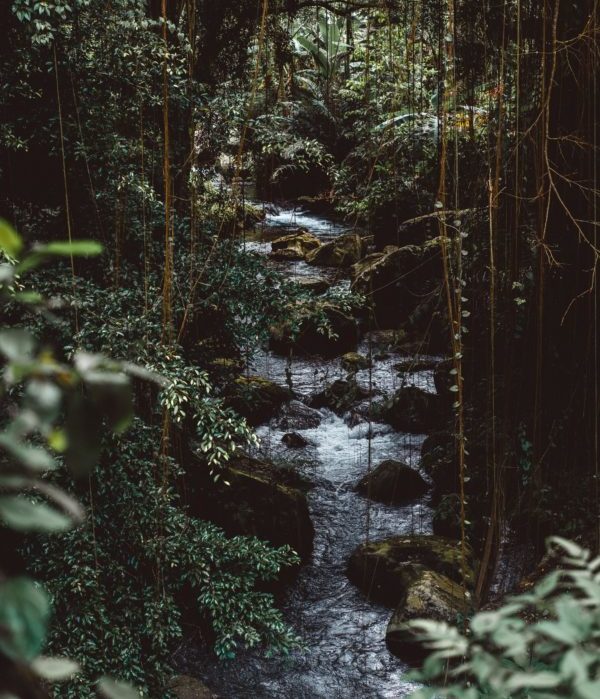
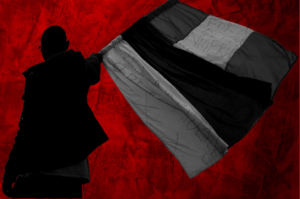

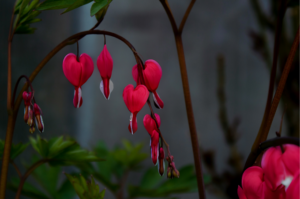
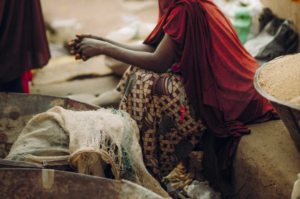
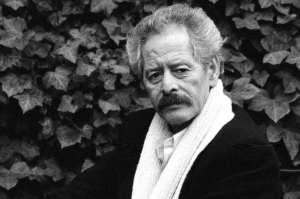
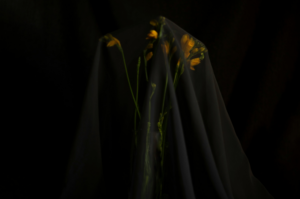

COMMENTS -
Reader Interactions